Winter in Switzerland is warmest on record
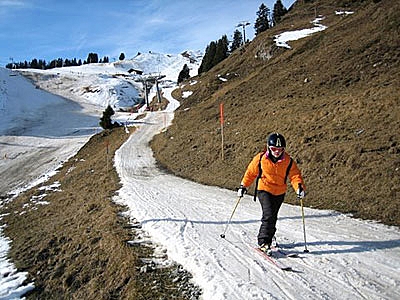
Temperatures have been three degrees Celsius higher than average over the past three months, in what has been the warmest winter since measurements began 140 years ago.
The national weather service, MeteoSwiss, said the densely populated lowlands were the most affected, with average temperatures of 5°C in Basel and 3.7°C in Zurich.
After two relatively cold winters, the report said, this year’s high temperatures have been more in line with the trend of the past few decades towards warmer weather at this time of year.
“Since the mid-1970s, there has been a clear rise in average monthly temperatures in winter,” MeteoSwiss said on its website.
The high temperatures have been reflected in the lack of snow, particularly in low-lying areas and in the north of the country.
Zurich, for example, receives an average of 70cm of new snow spread over 16 days in December, January and February. But there has only been 12cm of snow this year, which fell over the course of two days.
MeteoSwiss said the situation was similar in other towns and cities. The only year with less snow was 1989/90 when Zurich reported 3cm.
Places at higher altitudes – in the pre-Alps – have also suffered, receiving only a quarter of the snowfall of an average winter which quickly melted due to above freezing temperatures.
Many ski resorts with runs concentrated below 1,500m have been unable to operate for much of the season.
Global warming
“This development [in temperatures] is consistent with the predictions made in global climate models which take into account the effect of man-made greenhouse gases on the climate,” MeteoSwiss added.
Martin Hoelzle, climate scientist and glaciologist at Zurich University, told swissinfo that such warm winters are having an impact on public opinion.
“The realisation that things are changing is probably the best thing that can happen,” Hoelzle said.
“The first IPCC (United Nations climate panel) report published in the early 1990s did not receive much attention even though it said more or less the same as the latest [published earlier this month], so people now recognise climate change as a very important issue.”
This winter has only been the second warmest on record in the higher mountain regions (after 1989/90) and around Geneva (after 2000/01).
swissinfo with agencies
Basel 5.0°C (4.6°C in 1916)
Zurich 3.7°C (3.1°C in 2001)
Lugano 6.1°C (5.3°C in 1998)
Bern 2.8°C (2.8°C in 1994)
* Probable temperature rise between 1.8 and 4° Celsius.
* Possible temperature rise: up to 6.4° Celsius.
* Sea level most likely to rise by up to 43 centimetres.
* Arctic ice will probably disappear between 2050 and 2100.
* More heatwaves very likely.
* Intensity of tropical storms also likely to increase.

In compliance with the JTI standards
More: SWI swissinfo.ch certified by the Journalism Trust Initiative
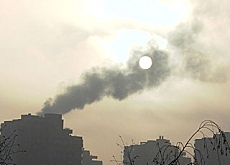
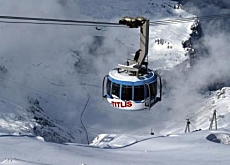
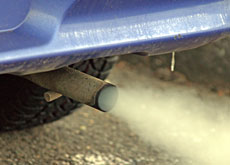
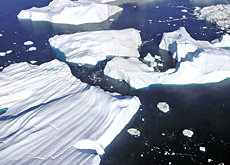
You can find an overview of ongoing debates with our journalists here. Please join us!
If you want to start a conversation about a topic raised in this article or want to report factual errors, email us at english@swissinfo.ch.